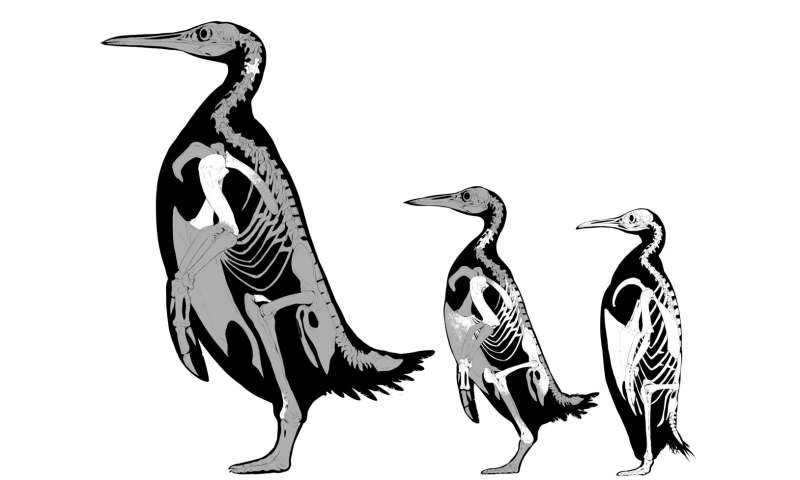Best of Last Week—Biggest penguin ever, Google rival to ChatGPT, why cold water dunking makes people more alert

It was a good week for archaeological research as a pair of archaeologists with Lund University in Sweden discovered "a treasure trove" of plants aboard a sunken 15th-century Norse ship. Found off the coast of Sweden, the plants were mostly spices and snack items such as dried fruits. An international team unearthed fossil bones in New Zealand from the largest penguin that ever lived. Now named Kumimanu fordycei, the ancient species was believed to have grown to weigh as much as 150 kilograms, more than three times the weight of today's largest penguins. A team of paleontologists from Portugal, Spain and France published a report detailing their discovery of shells and bones in a cave in Gruta de Figueira Brava, Spain, that showed the Neanderthals living there were cooking and eating crabs 90,000 years ago.
In technology news, computer scientists, two from the University of Edinburgh, and a third from Trinity College, found that phones purchased by customers in China are riddled with software that continuously sends user data to third parties without the permission or even knowledge of the users. And Google announced that they will release a ChatGPT rival called Bard—the announcement came just days after Microsoft announced ChatGPT integration into Bing, its search engine, and its Edge web browser. Also, a team of transportation engineers at North Carolina State University proposed that a fourth light be added to traffic lights—a white one for use by autonomous vehicles that would help keep traffic flowing smoothly. A combined team from Florida State University and Rutgers University developed a Wi-Fi sensing system that creates 3D human meshes.
In other news, a team at Emory University discovered two wild plants that contain extracts that inhibit the ability of the virus that causes COVID-19 to infect living cells—the flower, tall goldenrod, and rhizomes of the eagle fern block SARS-CoV-2 from entering human cells. Also, a team of medical researchers at ETH Zurich found that pancreatic cancer cells have high levels of hydrogen peroxide—making hydrogen peroxide an exciting new target for cancer research and treatment. And finally, a team with members from the University of Portsmouth, Bournemouth University and University Hospitals Dorse used MRI scans to reveal changes in brain wiring after a cold water shock—helping to explain why people often report feeling more alert and upbeat after being dunked in cold baths.
© 2023 Science X Network